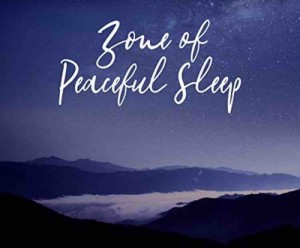 Not for a lot of people! And, even if you don’t have insomnia, we all have sleepless nights from time to time. Just because you close your eyes doesn’t mean you will go to sleep, but we can’t go to sleep without our eyes closed, so… we try again and again for it to work. Why can’t you go to sleep? And, is it important if you miss sleep?
Not for a lot of people! And, even if you don’t have insomnia, we all have sleepless nights from time to time. Just because you close your eyes doesn’t mean you will go to sleep, but we can’t go to sleep without our eyes closed, so… we try again and again for it to work. Why can’t you go to sleep? And, is it important if you miss sleep?
You’ve heard “8 glasses of water and 8 hours of sleep” is what we need. Maybe the water is true but not the sleep part. Research has shown that some people get by just fine with 7 or less hours of sleep per night. “Just fine” is defined as being able to be alert, rested, productive, and awake during the day.
Now, it is true that babies need lots of sleep and parents get concerned if they are not sleeping. When those babies grown to be teens, they do the same thing. Then, parents get concerned at the amount of time they spend sleeping. ![]() But age definitely matters when it comes to the amount of sleep we need.
But age definitely matters when it comes to the amount of sleep we need.
The amount you need now can change. To learn how much sleep you need, keep a diary for the next week or two. Keep track of how many hours you think you slept and how alert you feel the next day. You can put a smiley or frowning face to indicate your mood.
You may have “sleep debt.” If you need 8 hours of sleep and get less (say 7 hours each night), after a week you’ve lost the equivalent of almost one night’s sleep. That’s how to measure your sleep debt. If this is your history, don’t be surprised how much it accumulates over a year. This may explain feeling fatigued, burning eyes, feeling grouchy or depressed, loss of focus and hungry for things you think will perk you up, like sugar, caffeine. Sleep debt has been linked to weight gain, high blood pressure, diabetes and more.
Determine what’s causing your sleep debt. Do you have Insomnia? If you take more than 30 minutes to fall asleep and if you wake up during the night, can you get back to sleep? If this happens three or more times a week, you should get evaluated for Insomnia. There is treatment and it doesn’t have to turn you into a zombie or be addictive.
The good news: a night or two of poor sleep is common and most people bounce back by taking naps or sleeping in on the weekend.
What you can do is experiment with bedtime. Keep your wake-up time the same but move your bedtime back an hour for several days. If you’re still waking up tired and living by the coffee pot, move bedtime back 30 min. until you hit your magic hour. You will know what the magic hour is when you wake up feeling refreshed and rested.
Make it easy to go to sleep. Lay off alcohol and caffeine. If you are worried, cope with it by doing mindful meditation, full body relaxation, or journaling. These are just a few techniques that can help you relax.
If these things don’t help, reverse the strategy. Go to bed one hour later than usual, so you make yourself more tired.
Still can’t sleep? Try these:
- breath counting exercises
- visualize yourself in a deck chair on a cruise ship in calm, sunny, soothing rocking
- Get up and leave the bedroom, do something else like reading.
- Take a warm bath just before you go to bed.
- Exercise during the day. Not night.
- Take a nap early in the day, such as a lunch time snooze.
- invest in a white noise machine.
- keep a sleep diary before going to see your doctor
- if you can’t turn your mind from negative to neutral thoughts, see a therapist for Cognitive Behavioral therapy.
- 10 Do something. Don’t let sleep debt ruin your health.
